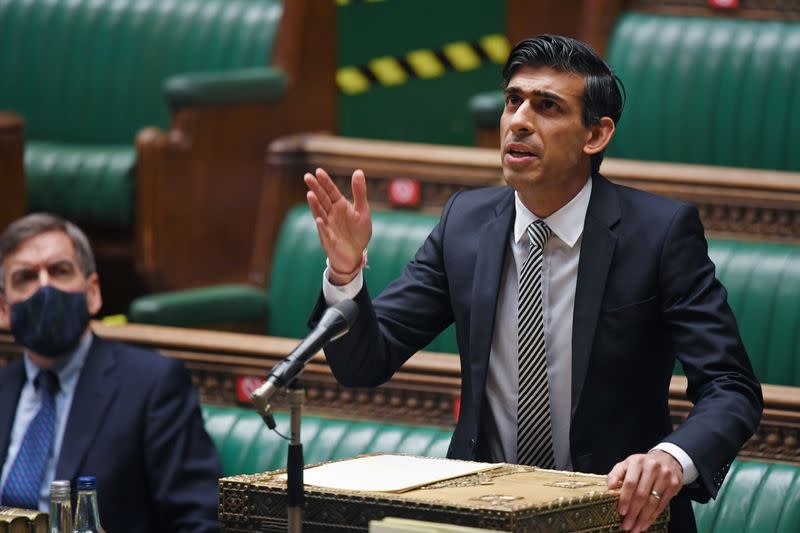Labour party opposes 'premature' post-COVID-19 spending cuts
By David Milliken
LONDON (Reuters) - Britain's main opposition Labour party called on the government on Wednesday not to cut public spending too soon and curtail economic recovery when the coronavirus pandemic ebbs.
Finance minister Rishi Sunak is due to set out new tax and spending plans in his annual budget on March 3, and faces pressure from some in his Conservative party to rapidly reduce Britain's biggest budget deficit since World War Two.
Cutting public borrowing and many areas of spending were cornerstones of Conservative economic policy when the party won power from Labour in 2010 after the financial crisis. This approach fell out of favour later in the decade, and Prime Minister Boris Johnson has said he is no fan of austerity.
However, Sunak told party members last year that rapidly rising public debt was a "yikes" moment for him.
On Wednesday Anneliese Dodds, the Labour Party's would-be finance minister, said she feared a return to past policies.
"For now, financial markets have priced in low rates for the long term. For as long as that is the case, government must make use of benign circumstances to avoid choking off recovery via premature and politically motivated fiscal tightening," she said in a major speech.
The 2010s had arguably seen too much reliance on Bank of England stimulus at the expense of fiscal policy, which had widened inequality by pumping up asset prices, she added.
CHEAP BORROWING
Compared with 2010, bodies such as the International Monetary Fund are much more relaxed about high levels of debt in countries like Britain, and borrowing is cheaper.
Even so, the IMF warned last year that Britain was still likely to need higher taxes over the medium term, a topic Dodds did not address in any detail.
Amanda Milling, a co-chairman of the Conservative Party, said Labour had rejected government measures to reduce borrowing for years, and that without these past savings it would be hard to spend now on the scale needed to tackle COVID-19.
Britain is not due to hold a national election until 2024, but Dodds said that if Labour was in power, she would favour balancing day-to-day spending against tax revenue, leaving scope to borrow for long-term investment.
Britain already has the world's longest average maturity for its government bonds. Dodds said the government should look into extending this further to lock in low borrowing costs.
Government should also take a 20-year rather than a five-year horizon to financial planning, she added, to better factor in long-term environmental and social challenges.
Dodds also called for greater focus on value-for-money in public procurement, and for competition and tax authorities to scrutinise major tech companies more closely.
(Reporting by David Milliken; Editing by Andy Bruce, Mark Heinrich and Alex Richardson)

 Yahoo News
Yahoo News 

